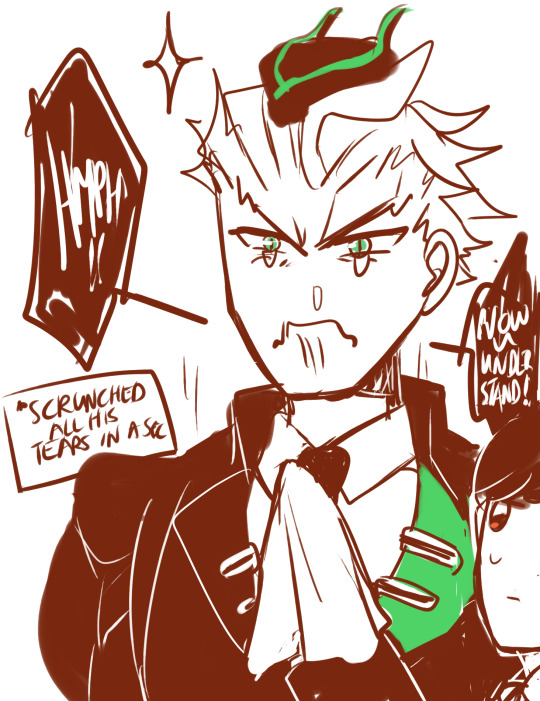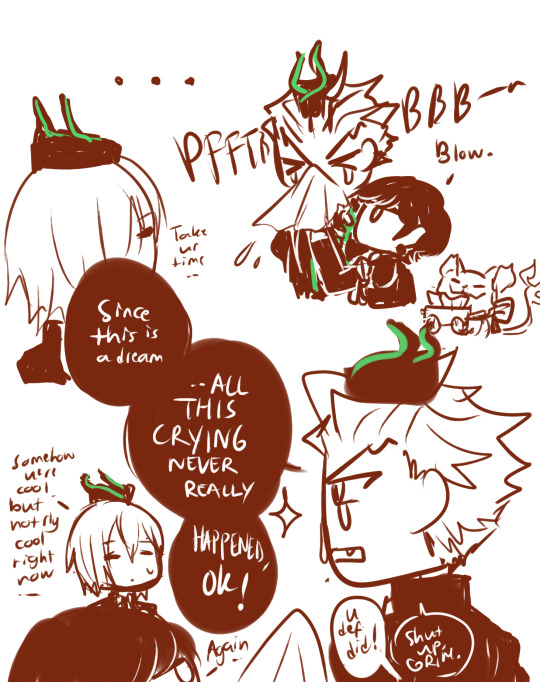#book coach
Text
Overcoming Writer's Block
Overcoming Writer's Block: Strategies and Inspiration from Fellow Authors
Writer's block is the dreaded nemesis of authors, a seemingly insurmountable barrier that can strike at any stage of the creative process. It's the moments when inspiration feels elusive, words refuse to flow, and the blank page taunts you. Every writer, from beginners to seasoned professionals, has experienced it. But the good news is that it's not an unbeatable foe. In this blog, we'll explore strategies and find inspiration from fellow authors to overcome writer's block and reignite your creative spark.

Understanding Writer's Block
Writer's block is often misunderstood as a singular, monolithic entity. In reality, it comes in various forms and can be triggered by different factors. Some common manifestations of writer's block include:
1. Blank Page Syndrome: You sit down to write, but the blank page stares back at you, devoid of words or ideas.
2. Self-Doubt: Insecurities about your writing abilities can paralyze your creativity. You second-guess every word you put on paper.
3. Stagnation: You feel stuck in your story, unable to progress or find a way forward.
4. Lack of Ideas: You may have a concept or outline, but the well of ideas has run dry, leaving you without a clear direction.
5. Perfectionism: The quest for perfection in your writing can lead to an overwhelming fear of making mistakes, stifling your progress. Here are few tips on How To Overcome The Fear Of Rejection As A Writer
Strategies to Overcome Writer's Block
1. Start Writing, Any Writing: The most important step to overcome writer's block is to write. Anything. It could be a journal entry, a random thought, or a few lines of unrelated text. The act of writing, regardless of the content, can help break the mental barriers.
2. Set Realistic Goals: Instead of aiming to write a thousand words in one sitting, set achievable, smaller goals. Tell yourself you'll write for 15 minutes or just one paragraph. The sense of accomplishment when you meet these goals can motivate you to continue.
3. Change Your Writing Environment: Sometimes, a change in scenery can do wonders. If you usually write at your desk, try writing outdoors, in a café, or even in a different room. New surroundings can stimulate creativity.
4. Writing Prompts: Writing prompts are a fantastic way to jumpstart your creative thinking. They provide a topic or a starting point to get your creative juices flowing. Many websites and books offer an array of writing prompts to choose from.
5. Exercise and Mindfulness: Physical activity and mindfulness practices, such as meditation or yoga, can help clear your mind and reduce stress. A fresh, relaxed mind is more likely to overcome writer's block.
6. Read and Research: Sometimes, reading a book, article, or research related to your topic can reignite your passion and ideas. It exposes you to new perspectives and can provide the spark you need to continue writing. Few more tips on becoming Productive Writer
Inspiration from Fellow Authors
One of the most reassuring aspects of writer's block is that you're not alone. Fellow authors have been there, struggled through it, and emerged victorious. Let's take inspiration from their experiences and advice:
1. Margaret Atwood: The renowned author of "The Handmaid's Tale" suggests that writer's block often stems from a lack of motivation, which can be solved by setting and meeting small, manageable goals. She says, "If I waited for perfection, I would never write a word."
2. J.K. Rowling: The creator of the "Harry Potter" series acknowledges that writer's block is a common issue even for prolific authors. She advises writers to avoid self-criticism during the first draft and just get the words on paper.
3. Ernest Hemingway: Hemingway believed in stopping at a point where you still know what will happen next in your writing, so you can easily pick up where you left off. This tactic can prevent the feeling of stagnation and fear of the unknown.
4. Stephen King: The author of numerous bestsellers advocates for consistency. He says, "Amateurs sit and wait for inspiration; the rest of us just get up and go to work." Establishing a daily writing routine can be a powerful weapon against writer's block.
5. Maya Angelou: The late poet and author emphasized the importance of showing up to write regularly. She advised, "What I try to do is write. I may write for two weeks 'the cat sat on the mat, that is that, not a rat,' ... I must write it down."
Seek Support from Writing Communities
If you're still battling writer's block despite trying various strategies, consider reaching out to writing communities. Fellow authors can provide encouragement, feedback, and inspiration. Joining writing groups, participating in writing challenges, or attending workshops can connect you with like-minded individuals who understand your struggles.
Moreover, sharing your experiences with fellow authors can be liberating. It reminds you that writer's block is a common affliction and not a testament to your abilities. It's a temporary roadblock, not an insurmountable obstacle.
In Conclusion
Writer's block is a formidable adversary, but it can be defeated with determination and the right strategies. Understanding its different forms, setting realistic goals, changing your writing environment, using prompts, and practicing mindfulness are effective tactics to overcome it.
Draw inspiration from accomplished authors who have faced writer's block and emerged victorious. Their experiences and advice can serve as beacons of hope during your own writing struggles.
Remember, writing communities are there to support you. Sharing your challenges and triumphs with fellow authors can provide the motivation and encouragement needed to break through writer's block and continue on your creative journey. Writer's block is not the end of your story; it's just one more obstacle to overcome on your path to becoming a successful writer.
91 notes
·
View notes
Text
Creating a Royal Character for Your Fiction Novel | Short Guide

When it comes to writing a royal character for your fiction novel, there are a few key elements that you should keep in mind. Whether your character is a king, queen, prince, or princess, they need to be believable and relatable to your readers. In this blog post, I’ll help you explore some tips and tricks for creating a royal character that your readers will love.
Research
Before you start writing your royal character, it’s important to do your research. This means studying the history and culture of the time period and setting in which your novel takes place. If your story is set in a medieval kingdom, for example, you’ll need to understand the social customs and political structures of that time.
You should also research real-life royal figures for inspiration. Look at their personalities, strengths, and weaknesses, and think about how you can incorporate these traits into your own character.
Personality
Your royal character’s personality is perhaps the most important aspect of their character. They should be complex, multi-dimensional, and relatable. One way to achieve this is to give them flaws and weaknesses, just like any other character. Perhaps they struggle with a temper, or they have a tendency to be too trusting of others.
At the same time, your royal character should also have strengths and admirable qualities. They may be brave, intelligent, or compassionate. Think about what makes your character unique and what sets them apart from other royal characters in literature.
Relationships
No character exists in a vacuum, and your royal character is no exception. Think about the relationships they have with other characters in your novel. Do they have a spouse or children? Do they have close advisors or friends? How do they interact with the common people in their kingdom?
These relationships can help to flesh out your royal character and make them more relatable to your readers. They may also provide opportunities for conflict and tension within your story.
Dialogue
The way your royal character speaks is also important. They should have a distinct voice that sets them apart from other characters. If they are a king or queen, for example, they may speak in a more formal and regal tone. If they are a prince or princess, they may have a more youthful and casual way of speaking.
At the same time, it’s important to make sure that your royal character’s dialogue is believable. They should speak in a way that is consistent with their personality and background.
Appearance
Your royal character’s appearance can also play a role in their character development. Think about how their appearance reflects their personality and status. A queen may wear regal clothing and jewelry, while a prince may dress more casually.
You should also think about how your character’s appearance changes throughout the story. Do they become more regal as they take on more responsibility? Do they become disheveled as they struggle with their duties?
Conflict
Finally, it’s important to give your royal character a compelling conflict to face. This conflict should be related to their role as a royal, and it should challenge their beliefs and values. Perhaps they must choose between their duty to their kingdom and their love for a commoner. Or maybe they must navigate a political crisis that threatens their reign.
Whatever conflict you choose, make sure it is meaningful and drives the story forward. It should also provide opportunities for your character to grow and change.
Checklist (For All You Writers)
Research the history and culture of the time period and setting in which your novel takes place.
2. Research real-life royal figures for inspiration.
3. Develop a complex personality for your character by giving them flaws and weaknesses, as well as strengths and admirable qualities.
4. Consider the relationships your character has with other characters in the novel, including family, advisors, and common people.
5. Craft a distinct voice for your character that is consistent with their personality and background.
6. Think about your character's appearance and how it reflects their personality and status.
7. Provide a compelling conflict for your character to face that challenges their beliefs and values and drives the story forward.
8. By following this checklist, you can create a royal character that is believable, relatable, and engaging for your readers.
Conclusion
Creating a royal character for your fiction novel can be a fun and rewarding experience. By doing your research, developing a complex personality, exploring relationships, crafting believable dialogue, considering appearance, and providing compelling conflict, you can create a character that your readers will love. With these tips and tricks in mind, you’ll be well on your way to creating a royal character that is fit for a king or queen.
Copyright © 2023 by Ren T.
TheWriteAdviceForWriters 2023
#writeblr#writerscommunity#writing#writing advice#writersnetwork#writersociety#writing inspiration#writers of tumblr#writing tips#aspiring author#novlr#theplottery#thecompletenovelcoach#novelcoach#bookcommunity#book coach#writing class#writing community#writing coach#writing courses#authors on tumblr#authors#new writers on tumblr#writersofinstagram#female writers#writers on tumblr#writingcoach#fiction#women writers#writerscorner
100 notes
·
View notes
Text
Should you hire a book coach?
So this one is going to have to be a blog post because there is a LOT to unpack with this one.
The short answer is maybe.
In my opinion, book coaching falls in the same category as a professional manuscript critique. Most of what they offer can be found less conveniently for free. They are a convenience and time saving service, not a necessity.
What a book coach usually offers:
Critique and feedback on your work. You can get this for free through critique partners and groups, but you will probably need to spend a bit of time finding a good match and invest time in giving feedback yourself.
Writing advice. There’s a lot of writing advice for free on the internet. You can also buy writing craft books for less than most book coaching services.
Teaching specific skills. The ones I see the most are outlining/plot development and character development. Again, this information can be found for free online and there are paid short courses that may be a cheaper alternative.
That’s a very short summarisation of what they can offer but everything really boils down to one of those two categories and you can find that same information and service for free if you’re willing to put in the time.
Why a book coach might be helpful for you specifically:
You struggle to finish drafts and need not only advice on writing itself, but motivation.
You’re a terrible researcher and although the information is out there on the internet, you’re unlikely to find it.
You hate researching and don’t want to put in the time and effort to find all the relevant information. That’s valid, not hating on you for it.
You have utilised free writing advice already and are still struggling with foundational skills such as outlining.
You do not have the time to provide feedback on the work of others or feel uncomfortable doing so.
You want writing advice that is specifically tailored to you and what you’re working on.
You’re new to writing.
Reasons a book coach might not be the right choice for you:
They’re an unnecessary expense. A book coach replaces the manuscript critique stage which, as I’ve said before, you can have done for free by another author. Their advice doesn’t, however, replace any of the other editorial stages. If money is an issue, book coaching might not be for you.
You have a good critique partner or critique group already or would prefer to be in an active writing group rather than work with a professional.
You have been writing for several years. If you’ve been writing since you were 14 and have been involved in the writing community for several years, you will get less out of book coaching than a true newbie.
You’re not good at verifying if someone is qualified to offer you advice. There are some really great book coaches out there, but there are some people offering the service who have never successfully published fiction, never worked as an editor, and have absolutely no relevant education. Note: if this is you, it is something you need to work on. There are a lot of scams out in the publishing world, at pretty much every step of the way someone is trying to trick you into paying them.
You don’t feel like you need one.
There’s a lot to discuss when choosing a book coach so I absolutely will do a blog post on the topic but I’m going to look into finding some writer’s who have had both good and bad experiences with book coaches to give us their insight as well. I might also chat with a few book coaches to see who they do and don’t think is a good fit for the service.
If that’s you, then please send me a message. I’d love to hear about your experience.
I’m a freelance editor who writes a blog providing editing advice (and the occasional bit of writing or self-publishing advice) to authors. If you’re interested, check it out here.
#writing#writing advice#book coaching#book coaches#book coachs#book coach#amwriting#writingadvice#writing community#writingcommunity#writer's community#editing advice#editing advice blog#editingadviceblog#amediting#writer's corner#writers corner#writers community#writing tips and tricks#writer's advice#writers advice#authors#writeblr#writer's of tumblr#writer's life#writers on tumblr#writers of tumblr#writer's on tumblr#writer#write
2 notes
·
View notes
Text

Book writing isn’t easy. You make excuses, you procrastinate, and when it is time to sit down and write, you draw a blank. This is where I come in. I am the author of over 15 books and I help get book ideas out of heads and on to the computer screen in less than 30 days! Thinking about writing a book isn’t good enough, let’s put action to thoughts today! Text for more information.
Website:
http://nichollmcguiremedia.com
Address:
Remote Location
2 notes
·
View notes
Text
#apollo papyrus#writing#books#podcast#spotify#interview#books and writing#nonfiction#book coach#coach#coaching#barbara boyd#for dummies#how-to books#how-to nonfiction
0 notes
Text
The Journey as Entrepreneur and Caregiver
Tune in to a captivating audio interview as Betsy Wurzel hosts Sheron Mingo Y, a dynamic entrepreneur celebrated for her multifaceted roles as a cookbook author, creator of the “Vegan Delectable“ series, book coach, speaker, and founder of SuperMementosYea, LLC. Sheron’s entrepreneurial prowess is matched only by her commitment to caregiving, as she tirelessly tends to her mother’s needs…

View On WordPress
#Advocacy.#Aging Parents#Authors#Betsy Wurzel#Book Coach#Caregivers#Cookbook Author#Cooking#Creative writing#Dementia#Food#National Caregiver&039;s Day#Presidential Award#Roger B. Dooley Award#Sheron Mingo Y#Vegan
0 notes
Text
Curly Quotes Editing - Fiction Editor
Looking for an experienced and reliable editor for your beloved book? Curly Quotes Editing has openings beginning in mid-June!
My name is Anna, and I'm the owner of Curly Quotes Editing. I have 10 years of editing experience, and my goal will always be to uplift your voice. I've worked with many different genres of writing such as thriller, fantasy, memoir, self-help, and children's literature.
Claim your editing slot by contacting me via my website, email, social media, or even a phone call! I offer free sample edits up to 1,000 words from anywhere in your manuscript.
www.curlyquotesediting.com
[email protected]
1 (405) 922-9485
1 note
·
View note
Text
I’m reading my baby sister The Mark of Athena right now. And she has absolutely no idea what is in store for Percy and Annabeth at the end of this book. She’s used to the “happy endings” I’ve been feeding her over the past year and a half with Uncle Rick’s books. I will be sure to report her reaction when we have finished.
#books#percy jackson#the mark of athena#rick riordan#the worst cliffhanger#annabeth chase#jason grace#piper mclean#leo valdez#hazel levesque#frank zhang#coach hedge#Percy Jackson and the Olympians#the heroes of olympus
4K notes
·
View notes
Text

FULL CHILDREN BOOK ILLUSTRATION AND PUBLISHING SERVICE
Book publishing service. We illustrate, prepare and upload your children book on amazon, lulu, barnes and noble, ingramspark.
Click to contact- https://goo.gl/BBf4uA
Email contact- [email protected]
As a Children's' book illustrator and publishing expert, i feel a personal sense of responsibility towards the society and i feel that the Children's book authors are doing a huge task by making the next generation by empowering them with stories which will bring positive changes in them. I run an illustration and book publishing agency that was formed to spreading smiles in the lives of the young stars living in every corner of the world through helping children book authors illustrate and self publish their books.
WHAT WILL BE DONE TO YOUR STORY
Create illustrations that suits your story. Formatting the interior with illustration for print on any of the website you want to use. Professional bookcover that will pop on any website. Free ISBN number, Barcode and 3D mockup. Your book will be uploaded and published on amazon, lulu, barnes and nobles, ingramspark, kindle. Free promotion with a powerful blasting software.
Contact me for more information.
Best Regard.
#elf publishing#conscious dreams#publishing#black authors and writers#book coach#black author ship#book publishing house#black characters#cultural books#book publishing consultant#book publishing life#book publishing industry#independent publishing#book publishing tips#book publishing company#book lover#book publishers#book publisher#book publish#bookpublishersnetwork#childrenbookillustration#illustrator#childrenbookpublisher#childrenbookpublishing#bookpublishing#bookpublishers#bookpublishingcompanies#bookpublishingcompany#bookpublishingconsultant#childrensbooks
0 notes
Text




sebek really said,
i will give u a lifetime beating ur parent never gave u because they love u too much but u are too dumb to realize that
#fsdhs somehow i can never find the original image of that coach about to slap the arm of one of his sport player#even tho i find it really funny#twisted wonderland#twst#sebek zigvolt#twst silver#book 7#twst yuu#twst mc#twst grim#fanart#anyhow WHY THOSE PUNCHES SOUND LIKE THAT#LIKE not exactly PONG! BUT AS COMICAL AS PONG!#FSDHSH SUCH A GAG GAME sometimes THEY JUST FOUND THE RIGHT TIME TO BE FUNNY
1K notes
·
View notes
Text
I don’t think the upperclassmen see Neil as sad and traumatized as much as they see him as a feral but deadly cat or chihuahua that they fed a couple times and is now theirs forever.
#I mean their introduction to him was him yelling at KEVIN IN FRONT OF ANDREW!#Then booking it out of there like the debt collector knocked.#And Kevin had coached them for the past year so you know this man was a stupid hero in their minds#they watched the Riko roast#and the Riko Roast 2.0 more faster more furious#aftg#all for the game#the foxhole court#the raven king#the kings men#neil josten#the upperclassmen#dan wilds#matt boyd#renee walker#allison reynolds
968 notes
·
View notes
Text
Crafting Literary Masterpieces: Unraveling the Significance of Writing Style in Your Book
In the vast realm of literature, where storytelling reigns supreme, the importance of a perfect writing style cannot be overstated. Aspiring authors often grapple with the question: How much does writing style truly matter for your book? In this exploration, we will delve into the significance of a refined writing style and how it can elevate your work from good to unforgettable.

1. The Art of the Perfect Writing Style:
Picture a painting, each stroke deliberate and purposeful, creating a masterpiece that captivates the beholder. Similarly, a perfect writing style weaves words together in a way that transcends mere communication; it becomes an art form that enriches the reader's experience. Crafting sentences with precision, choosing the right tone, and molding a distinctive voice contribute to the creation of a narrative that is not just a story but an immersive journey.
2. The Power to Immerse and Engage:
Your writing style is the vessel through which your narrative flows into the minds of your readers. A compelling writing style has the power to immerse readers in the world you've crafted, making them feel a part of the story rather than mere spectators. Descriptive prose, evocative language, and a careful choice of words enhance the overall reading experience, drawing readers deeper into the narrative tapestry.
3. The Impact on Reader Connection:
Improve your writing style, and you inevitably enhance your ability to connect with your readers on a profound level. A well-crafted style allows you to convey emotions with authenticity, creating characters that resonate and plots that linger in the minds of your audience. As readers connect with your writing style, they form a bond with your work, ensuring a lasting impact that extends beyond the final page.
4. Writing Communities: A Crucible for Style Refinement:
The journey to a perfect writing style doesn't have to be a solitary one. Engaging with writing communities provides a unique opportunity for writers to receive constructive feedback, exchange ideas, and refine their styles. Whether it's through workshops, online forums, or local writing groups, the diverse perspectives within a writing community can offer valuable insights that contribute to the evolution of your writing style.
5. Expressing Individuality Through Style:
Your writing style is a fingerprint, a distinctive mark that sets your work apart. It's not just about adhering to grammatical rules; it's about expressing your individuality as an author. Embrace your unique voice, experiment with different styles, and allow your personality to shine through your words. A perfect writing style is one that aligns with your authentic self, resonating with readers who appreciate the genuine artistry behind the words.
6. Evolving Your Style: A Writer's Journey:
Writing style is not static; it's a dynamic entity that evolves over time. Successful authors understand the importance of continuous improvement. Reflect on your work, seek feedback, and be open to experimentation. As you grow and evolve, so too will your writing style, ensuring that each subsequent project is a testament to your development as an artist.
Conclusion:
In the grand tapestry of literature, the significance of a perfect writing style cannot be overstated. It is the brushstroke that defines the tone, the rhythm that guides the narrative dance. Aspiring authors, take heed—improve your writing style, nurture it, and let it become the vehicle through which your literary vision comes to life. Engage with writing communities, embrace feedback, and allow your unique voice to resonate. In doing so, you embark on a journey not only to write stories but to craft timeless works of art that leave an indelible mark on the hearts and minds of your readers.
23 notes
·
View notes
Text
How to Write a Fantasy Novel Based in East Asia

Introduction
Imagine a world where dragons soar through the skies, where warriors wield swords with deadly precision, and where magic flows through the veins of the land. This is the world of East Asian fantasy, where ancient myths and legends come to life in vibrant and colorful ways. If you're a writer looking to create your own unique story set in this rich and fascinating world, then look no further. In this guide, I'll help you explore everything you need to know to write a fantasy novel based in East Asia.
Before we begin, it's important to acknowledge the vast cultural diversity of East Asia. This region includes countries such as China, Japan, Korea, and Vietnam, each with their own unique histories, traditions, and mythologies. While it's impossible to cover every aspect of this diverse region in one guide, I'll do my best to provide a broad overview of some of the key themes and elements you might want to consider when writing your own East Asian-inspired fantasy.
So, let's dive in!
Section 1: Setting the Scene
The first step in creating a compelling East Asian-inspired fantasy is to build a rich and immersive world for your characters to inhabit. This means taking the time to research and understand the historical and cultural context of the region you're drawing inspiration from, as well as incorporating elements of mythology and folklore.
For example, if you're writing a story set in ancient China, you might want to consider incorporating elements of Taoist philosophy or exploring the legend of the Monkey King. If you're setting your story in feudal Japan, you might draw inspiration from the samurai code of bushido or the tales of the legendary ninja clans. Whatever your chosen setting, be sure to immerse yourself in the history and culture of the region to create a world that feels authentic and engaging.
Once you've established the cultural context of your story, you can start to think about the physical world your characters will inhabit. This might include creating detailed maps of your fictional world, inventing unique flora and fauna, or describing the architecture and landscapes of your chosen setting. Don't be afraid to get creative here – by incorporating fantastical elements like floating temples, enchanted forests, or spirit realms, you can bring your world to life in exciting and unexpected ways.
Section 2: Crafting Your Characters
As with any story, the characters you create are the heart and soul of your East Asian-inspired fantasy. To create compelling and believable characters, it's important to draw on the cultural and historical context of your chosen setting, as well as incorporating elements of mythology and folklore.
For example, if you're writing a story set in feudal Japan, you might create a samurai character who embodies the values of bushido, such as honor, loyalty, and courage. Or, if you're setting your story in ancient China, you might create a character who is skilled in martial arts and draws on the principles of Taoist philosophy to guide their actions.
When crafting your characters, it's also important to consider their relationships with each other. In East Asian cultures, family, community, and hierarchy are often highly valued, so you might incorporate these themes into your story by exploring the dynamics between your characters. For example, you might create a protagonist who must navigate the complex social hierarchy of a samurai clan, or a group of travelers who must learn to work together to overcome a common enemy.
Section 3: Incorporating Magic and Mythology
One of the most exciting aspects of writing an East Asian-inspired fantasy is the opportunity to draw on the rich mythology and folklore of the region. This might include incorporating ancient gods and goddesses, magical creatures like dragons or kitsune, or exploring the concept of qi or ki energy.
When incorporating magic into your story, it's important to establish clear rules and limitations for your characters. This might mean defining the sources of magical power in your world, such as through meditation or the use of enchanted objects, or setting limits on the types of spells or abilities your characters can use.
Finally, remember that mythology and magic are often deeply intertwined in East Asian cultures. By exploring the myths and legends of the region, you can add depth and richness to your story, while also drawing on powerful archetypes and symbols that resonate with readers.
Disclaimer
I wanted to make sure to note, that it's heavily important to research the culture your inspired by. Many experts will be offended by misinterpreted cultural or even religious aspects that are misused. Especially if it's an individual born in the region your inspired by. So please be educated especially if for example if you're writing a chinese-inspired fantasy novel, and you're not chinese. It's heavily recommended to research cultural-appropriation, the history of the culture. the stereotypes and racism East-Asians go through on a daily basis. Thank you. - Ren T.
Conclusion
Writing a fantasy novel based in East Asia can be a daunting task, but by drawing on the rich history, culture, and mythology of the region, you can create a world that is both engaging and authentic. By setting the scene, crafting compelling characters, and incorporating magic and mythology, you can bring your story to life in exciting and unexpected ways. So, don't be afraid to dive in and explore this fascinating world, and let your imagination run wild!
Copyright © 2023 by Ren T.
TheWriteAdviceForWriters 2023
#writeblr#writerscommunity#writing#writing advice#writersnetwork#writersociety#writing inspiration#writers of tumblr#writing tips#aspiring author#thecompletenovelcoach#novelcoach#bookcommunity#book coach#writing class#writing community#writing coach#writing courses#authors on tumblr#authors#new writers on tumblr#writersofinstagram#female writers#writers on tumblr#writingcoach#fiction#women writers#writerscorner#creative writing#writers block
18 notes
·
View notes
Text
when someone says, “after all I’ve done for you…” they are revealing that what they did “for you” was not for you at all, but for their own need to control you.
their “generosity” was a contract with hidden terms to make sure you always owed them and to guilt trip you into doing something for them in return.
a reminder that if someone really loved you, their generosity should and would be genuine, in the sense that they’d never bring up what they did for you to remind and guilt trip you into doing something for them. all the things they’ve done for you, they would’ve done them because they loved you, not because they wanted you to owe them.
— via instagram: subconsciousthinkers
#quote#quotes#literature#spilled words#spilled writing#spilled ink#prose#bookblr#book#life coaching#relationship#writing#writeblr#writer#writers#inspiration#spilled thoughts#spilled feelings#spilled truth#friendship#inspiring#spilled heart#inspirational#inspiring quotes
273 notes
·
View notes
Text
After every interaction between Jean and Rhemann the only thing I could imagine was Rhemann pouring himself a drink and calling up Wymack like how tf do you deal with an entire team of this
#the sunshine court#coach rhemann#jean moreau#david wymack#aftg#tsc#text#david 'flew out with jean to walk him safely into jeremy's arms' wymack#was absolutely on the phone with the trojan coaching staff in the background through the entire book#you can't convince me otherwise
245 notes
·
View notes
Text





(x)
#the face of a man who definitely won't read a financial coaching book (he narrated as part of his job) during his leisure time#but is waaay too polite to say that#anyway - you're welcome 😇#[unbelievable that this man right there has narrated about 50 audiobooks so far and I'm waiting a decade for Matt to do at least one. fml]#Ilkka Villi#my beloved handsome devil babygirl#tinyclowntent
278 notes
·
View notes